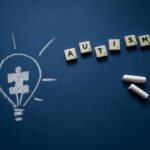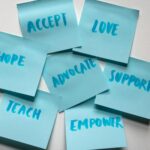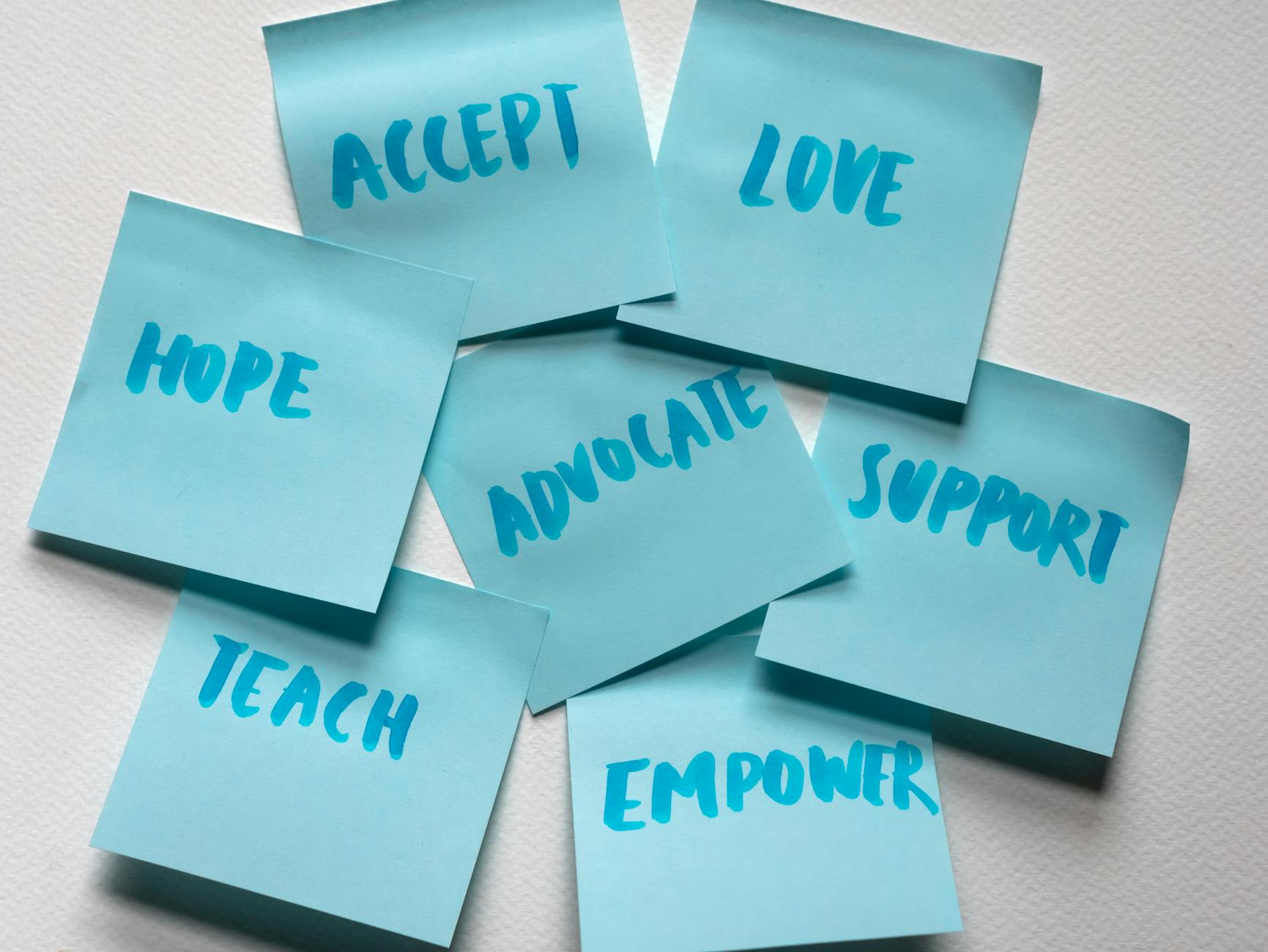March 1, 2025
Empower, Educate, Embrace: Celebrating Developmental Disabilities Awareness Month
Each March, we acknowledge and celebrate Developmental Disabilities Awareness Month. This has a special place in my heart; I am navigating motherhood with two neurodivergent children, one of whom is medically disabled. This special occasion is dedicated to raising awareness about the challenges faced by individuals with developmental disabilities and highlighting their abilities, achievements, and contributions to society. The month-long campaign is crucial in breaking down stereotypes and reducing the stigma around developmental disabilities.
What are developmental disabilities?
A developmental disability is a physical or mental impairment that begins before age 22 and affects a person’s ability to engage in daily activities independently. These disabilities can include Intellectual Disabilities, Autism, Down Syndrome, Cerebral Palsy, and many others. Individuals with developmental differences often face unique challenges in their daily lives, such as difficulties with communication, learning, mobility, and social interaction. It is important to understand that a disability does not indicate a person’s intelligence or worth. Rather, it reflects the diverse ways each of us experiences the world.
The Importance of Raising Awareness About Developmental Disabilities
Breaking Down Barriers And Misconceptions
Raising awareness about developmental disabilities is essential for challenging stereotypes, dispelling myths, and building a more accurate understanding of these conditions. By confronting common misconceptions, we create a more informed perspective that leads to greater acceptance.
Increasing awareness helps foster empathy and compassion—qualities that are key to creating an inclusive society. When people gain a deeper insight into the realities of these disabilities, they become more open-minded and supportive, paving the way for a welcoming environment for everyone.
Access to Essential Support and Resources
Access to essential resources is key for individuals with disabilities to lead fulfilling lives. This means ensuring they have quality healthcare that supports their overall well-being, inclusive educational opportunities that foster growth and independence, meaningful employment that allows them to contribute and thrive, and robust social networks that offer genuine support.
Yet recent policy shifts—including the rollback of Diversity, Equity, and Inclusion initiatives—pose a serious threat to these vital areas. For healthcare, reduced funding for disability-focused research and accessibility initiatives risks widening disparities in medical care. In education, eliminating DEI programs can limit support for accommodations and special education services, potentially reversing progress toward inclusive learning environments. In employment, the weakening of workplace DEI policies may result in fewer job opportunities and less comprehensive accommodations, increasing the risk of discrimination. And in social support, scaling back these programs could leave many without access to critical community networks and advocacy services.
Despite these challenges, advocacy is more important than ever. By championing inclusive policies, raising awareness, and ensuring that essential resources remain accessible, we can build a society where everyone truly has the opportunity to thrive.
History and Significance of Developmental Disabilities Awareness Month
In 1987, President Ronald Reagan proclaimed March as “Developmental Disabilities Awareness Month”—a move rooted in a congressional resolution that aimed to spotlight the needs and potential of Americans with developmental disabilities. The proclamation urged the nation to offer encouragement and opportunities so that these individuals could lead productive lives and achieve their full potential. Since then, communities across the country have embraced March as a time to both celebrate achievements and advance the ongoing work toward greater inclusion and opportunity.
Breaking The Stigma Surrounding Developmental Disabilities
We need to rethink the negative attitudes, outdated beliefs, and harmful stereotypes that society often holds about individuals with disabilities. These biases create discrimination, exclusion, and lost opportunities. To truly break the stigma, we must confront these misconceptions head-on and foster a more accurate, inclusive understanding of developmental disabilities. By celebrating the unique strengths, talents, and abilities of these individuals, we empower them to lead fulfilling lives and build communities where everyone is valued.
Promoting Inclusion And Acceptance
Inclusion and acceptance are core values that call on us to honor and respect every individual—especially those with developmental disabilities. Every person deserves equal access to opportunities, rights, and services. By breaking down physical barriers, challenging social biases, and updating outdated beliefs, we can build communities where everyone thrives.
To promote this vision, consider these key steps:
Education: Create learning spaces that address the diverse needs of all students by developing comprehensive resources.
Employment: Implement fair hiring practices that ensure everyone has equal job opportunities.
Community Engagement: Offer recreational activities that are accessible and welcoming to all community members.
Taking these actions paves the way for a more inclusive society that truly celebrates the unique contributions of every individual.
Ways to get involved during Developmental Disabilities Awareness Month
There are many meaningful ways to support the cause during Developmental Disabilities Awareness Month. Here are some ideas:
- Educate Yourself: Take time to learn about various developmental disabilities, how they affect individuals, and the challenges they face. This knowledge not only helps you challenge misconceptions but also equips you to advocate for inclusion.
- Spread Awareness: Use your voice—whether through social media, community events, or personal conversations—to share accurate information, personal stories, and helpful resources. Encourage friends, family, and colleagues to join the conversation and deepen their understanding.
- Volunteer: Connect with local organizations that support individuals with developmental disabilities. By volunteering your time and skills—through mentoring, tutoring, or assisting with recreational activities—you can make a real difference in someone’s life.
- Advocate for Inclusive Policies: Reach out to local representatives and policymakers to champion policies that support individuals with developmental disabilities. Attend town hall meetings, write letters, or participate in advocacy campaigns to help drive change.
- Support Inclusive Businesses: Seek out and patronize businesses that prioritize inclusion and provide employment opportunities for individuals with developmental disabilities. Your support contributes to building a more inclusive and thriving economy.
Each of these actions plays an important role in building a community where everyone has the opportunity to thrive.
Resources
For individuals with developmental disabilities and their families, finding the right resources can be truly transformative. Here’s a comprehensive list of resources and support options to help you build a more inclusive and empowered life:
Government Programs & Educational Services
Local and State Developmental Disability Councils: These agencies can provide up-to-date information on services, grants, and support programs available in your area.
Early Intervention & Special Education Programs: Under laws like the Individuals with Disabilities Education Act (IDEA), these programs offer assessments, Individualized Education Programs (IEPs), and tailored learning support to meet your child’s unique needs.
Medicaid and Government-Funded Healthcare: Many government programs help cover therapies, assistive devices, and other essential services.
Vocational Rehabilitation Services: These programs assist with job training, career counseling, and job placement, helping individuals transition into the workforce.
Nonprofit Organizations & Advocacy Groups
National Organizations: Groups such as The Arc, National Down Syndrome Society, and the Autism Self Advocacy Network offer advocacy, community connections, and a wealth of resources.
Local Community Centers and Support Groups: These often provide counseling, respite care, social activities, and advocacy support, creating local networks for connection and assistance.
Legal Advocacy Groups: Organizations like the Disability Rights Education and Defense Fund (DREDF) provide legal support and work to protect the rights of individuals with disabilities.
Employment & Vocational Support
Supported Employment Programs: Designed to help individuals secure and maintain meaningful work through customized job placement and ongoing support.
Job Accommodation Network (JAN): Offers free consulting on workplace accommodations and strategies to improve employment opportunities.
Local Job Training Centers: Many communities offer vocational training tailored to a wide range of abilities, helping individuals gain essential skills for the workforce.
Community-Based Services
Independent Living Centers (ILCs): These centers support individuals with disabilities through advocacy, resource sharing, and training. They help develop essential independent living skills.
Recreational and Adaptive Sports Programs: These programs offer inclusive sports, arts, and leisure activities. They promote physical well-being and encourage social connections.
Inclusive Summer Camps and After-School Programs: These initiatives create fun, supportive environments for children of all abilities. Every child has the chance to participate and thrive.
Online Resources & Helplines
National Resource Directories: Services like 2-1-1 connect you with local community support and services, including those specific to disability support.
Dedicated Websites and Forums: Numerous online platforms offer personal stories, expert advice, and the latest information.
Crisis Intervention Helplines: Accessible helplines are available for urgent support. Help is just a phone call away when you need it most.
Financial Assistance & Additional Resources
Financial Assistance & Support: Many organizations and government programs offer grants, scholarships, and financial aid. These funds help cover therapies, adaptive equipment, and educational expenses.
Legal Support: Families facing discrimination or legal challenges can access free or low-cost legal aid. These services help navigate disability rights and protections.
Mental Health & Well-Being: Counseling and therapy resources support individuals with disabilities and their families. These services help address emotional challenges with care and understanding.
Conclusion
Developmental Disabilities Awareness Month is a time to open our hearts and embrace everyone with kindness. It’s a reminder to lead with empathy, celebrate differences, and make sure everyone feels valued. This month encourages us to break down barriers, stand up for equal rights, and create opportunities for all. Most importantly, it’s a chance to honor the incredible contributions of individuals with developmental disabilities. When we come together with love and understanding, we build a world where everyone belongs. Every small act of kindness brings us closer to a brighter, more inclusive future.
Local Resources
Indiana Disability Resource FINDER
Governor’s Council For People With Disabilities
The Bureau of Disabilities Services
Blog Posts Of Interest:
Autism Acceptance Month: Embracing Diversity, Challenging Stereotypes
- Family Photos with Autistic Kids: A Calmer, Happier Plan
 Family Photos with Autistic Kids: A Calmer, Happier Plan By Nightingale & Willow Photography • Westfield, IN If you’re here, you want family photos with autistic kids that honor your child’s nervous system—not fight it. The heart of it Less noise. More choice. A slower pace. That’s how we make room for the real thing—and… Read more: Family Photos with Autistic Kids: A Calmer, Happier Plan
Family Photos with Autistic Kids: A Calmer, Happier Plan By Nightingale & Willow Photography • Westfield, IN If you’re here, you want family photos with autistic kids that honor your child’s nervous system—not fight it. The heart of it Less noise. More choice. A slower pace. That’s how we make room for the real thing—and… Read more: Family Photos with Autistic Kids: A Calmer, Happier Plan - Use the Upstairs Brain: Nurturing Empathy and Problem-Solving in Children
 Use the Upstairs Brain: Nurturing Empathy and Problem-Solving in Children Sometimes it feels like our kids are being completely unreasonable—and the truth is, they might be. Not because they’re trying to be difficult, but because the rational, logical part of their brain—the “upstairs brain”—may be offline. The Whole Brain Parenting strategy “Use the Upstairs Brain”… Read more: Use the Upstairs Brain: Nurturing Empathy and Problem-Solving in Children
Use the Upstairs Brain: Nurturing Empathy and Problem-Solving in Children Sometimes it feels like our kids are being completely unreasonable—and the truth is, they might be. Not because they’re trying to be difficult, but because the rational, logical part of their brain—the “upstairs brain”—may be offline. The Whole Brain Parenting strategy “Use the Upstairs Brain”… Read more: Use the Upstairs Brain: Nurturing Empathy and Problem-Solving in Children - Move It or Lose It: How Physical Activity Helps Kids Regulate Big Emotions
 Move It or Lose It: How Physical Activity Helps Kids Regulate Big Emotions We’ve all seen it—that moment when a child is overwhelmed and can’t calm down no matter how many soothing words we offer. In those intense moments, reasoning falls flat, and frustration builds. That’s where the “Move It or Lose It” strategy from… Read more: Move It or Lose It: How Physical Activity Helps Kids Regulate Big Emotions
Move It or Lose It: How Physical Activity Helps Kids Regulate Big Emotions We’ve all seen it—that moment when a child is overwhelmed and can’t calm down no matter how many soothing words we offer. In those intense moments, reasoning falls flat, and frustration builds. That’s where the “Move It or Lose It” strategy from… Read more: Move It or Lose It: How Physical Activity Helps Kids Regulate Big Emotions - Empower, Educate, Embrace: Celebrating Developmental Disabilities Awareness Month
 Empower, Educate, Embrace: Celebrating Developmental Disabilities Awareness Month Each March, we acknowledge and celebrate Developmental Disabilities Awareness Month. This has a special place in my heart; I am navigating motherhood with two neurodivergent children, one of whom is medically disabled. This special occasion is dedicated to raising awareness about the challenges faced by individuals with… Read more: Empower, Educate, Embrace: Celebrating Developmental Disabilities Awareness Month
Empower, Educate, Embrace: Celebrating Developmental Disabilities Awareness Month Each March, we acknowledge and celebrate Developmental Disabilities Awareness Month. This has a special place in my heart; I am navigating motherhood with two neurodivergent children, one of whom is medically disabled. This special occasion is dedicated to raising awareness about the challenges faced by individuals with… Read more: Empower, Educate, Embrace: Celebrating Developmental Disabilities Awareness Month - Engage, Don’t Enrage: Transforming Conflict into Cooperation with Whole Brain Parenting
 Engage, Don’t Enrage: Transforming Conflict into Cooperation with Whole Brain Parenting Parenting is a journey filled with joy, challenges, and the occasional storm of emotions. One of the most powerful tools in a parent’s arsenal is the ability to regulate their own emotions while guiding their child through difficult moments. The “Engage, Don’t Enrage” strategy,… Read more: Engage, Don’t Enrage: Transforming Conflict into Cooperation with Whole Brain Parenting
Engage, Don’t Enrage: Transforming Conflict into Cooperation with Whole Brain Parenting Parenting is a journey filled with joy, challenges, and the occasional storm of emotions. One of the most powerful tools in a parent’s arsenal is the ability to regulate their own emotions while guiding their child through difficult moments. The “Engage, Don’t Enrage” strategy,… Read more: Engage, Don’t Enrage: Transforming Conflict into Cooperation with Whole Brain Parenting
Leah Parks with Nightingale and Willow Photography is a Family and In-Home Newborn Photographer. She is based in Westfield, a charming suburb 20 miles north of Indianapolis. As a dedicated mother and educator deeply rooted in the world of neurodiversity, Leah brings a wealth of experience and passionate advocacy to her work. Her unique approach is based on her personal experiences with her children’s distinctive developmental paths and a deep understanding of each family’s individual situation. Leah’s mission is to capture the beauty of each family’s story and promote empathy, inclusion, and hands-free moments of love.
Related
Discover more from nightingaleandwillow.com
Subscribe to get the latest posts sent to your email.
Leave a Reply Cancel reply
photos by nightingale and willow LLC © 2025 | All rights reserved |
